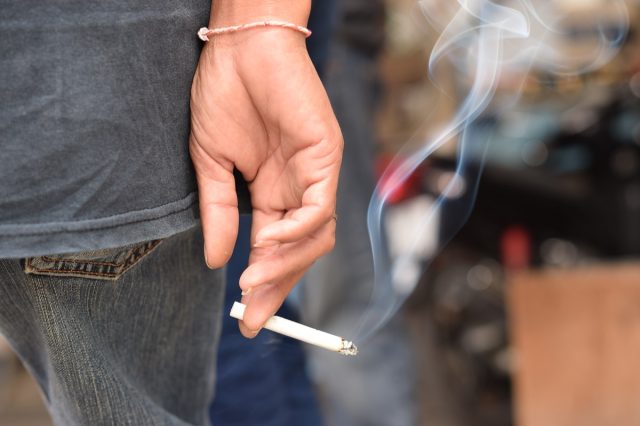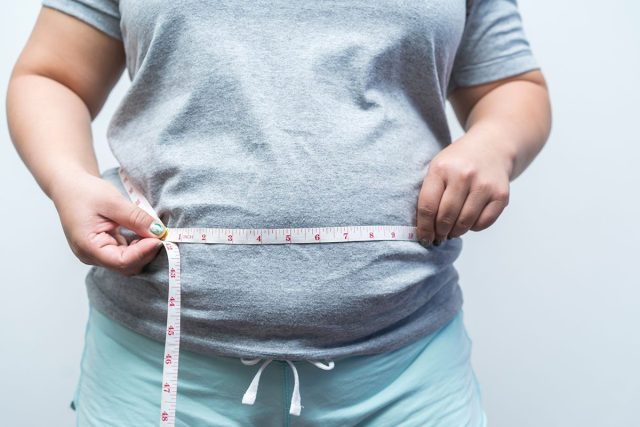Cancer is a leading cause of death both in the US and worldwide, but between 30%-50% of cases can be prevented, experts claim. "Prevention is very hard," says Timothy Rebbeck, PhD, the Vincent L. Gregory, Jr. Professor of Cancer Prevention at the Harvard T.H. Chan School of Public Health and Dana-Farber Cancer Institute. "People want to think about cure. They say we need to cure cancer—and if someone has cancer, you absolutely want to cure it. But what's not gotten into the public mindset is that we need to prevent cancer so that nobody needs to be cured." Here are five signs you might be at high risk for getting cancer, according to doctors.
You're a Smoker

According to the CDC, almost nine out of ten lung cancer deaths are caused by smoking, or by secondhand smoke exposure. "Most people know that cigarette smoking is the predominant cause of lung cancer," says Anthony J. Alberg, PhD, MPH, cancer epidemiologist, professor, and chair of the Department of Epidemiology and Biostatistics at the University of South Carolina's Arnold School of Public Health. "But what is less well known is that cigarette smoking is known to cause of many other types of cancer, including bladder cancer, cervical cancer, colorectal cancer, esophageal cancer, kidney cancer, laryngeal and hypopharyngeal cancer, liver cancer, oral and oropharyngeal cancer, and pancreatic cancer."
You're Obese

Being overweight, especially in the abdominal region (known as belly fat or visceral fat), is strongly linked to cancer, experts warn. "The problem with excessive visceral fat is that it affects certain processes in your body. This includes how your body manages hormones, like insulin and estrogen," says Karen Basen-Engquist, PhD, professor in Behavioral Science at MD Anderson. "All of this can lead to an increased cancer risk by affecting how and when cells divide and die."
Too Much Alcohol Consumption

There is no "safe" amount of alcohol, according to the American Cancer Society. "We know that alcohol increases the risk for several cancers, including oral cancer, pharynx and larynx cancers, colorectal and esophageal cancers, as well as liver and breast cancers," says Therese Bevers, MD, medical director of MD Anderson's Cancer Prevention Center. "Research has shown that when you stop drinking, the risk for alcohol-related cancers declines over time. It may take many years to fully eliminate that risk; however, quitting is a very important step to improving your health and decreasing your cancer risk."
Sedentary Lifestyle

A sedentary lifestyle can greatly increase the risk of cancer, doctors warn. One study showed that more than one hour of daily TV viewing was linked to a 12 percent increase in risk of colorectal cancer. "Sedentary lifestyle is one of the risks factors that is often overlooked," says Yin Cao, lead author of the study and a cancer epidemiologist at the Washington University School of Medicine in St. Louis. "This study may help identify those at high risk and who might benefit more from early screening."
Chronic, Unexplained Fatigue

"Extreme fatigue that doesn't get better with rest can be an early sign of cancer," according to Johns Hopkins Medicine. "Cancer uses your body's nutrients to grow and advance, so those nutrients are no longer replenishing your body. This 'nutrient theft' can make you feel extremely tired."
No comments:
Post a Comment